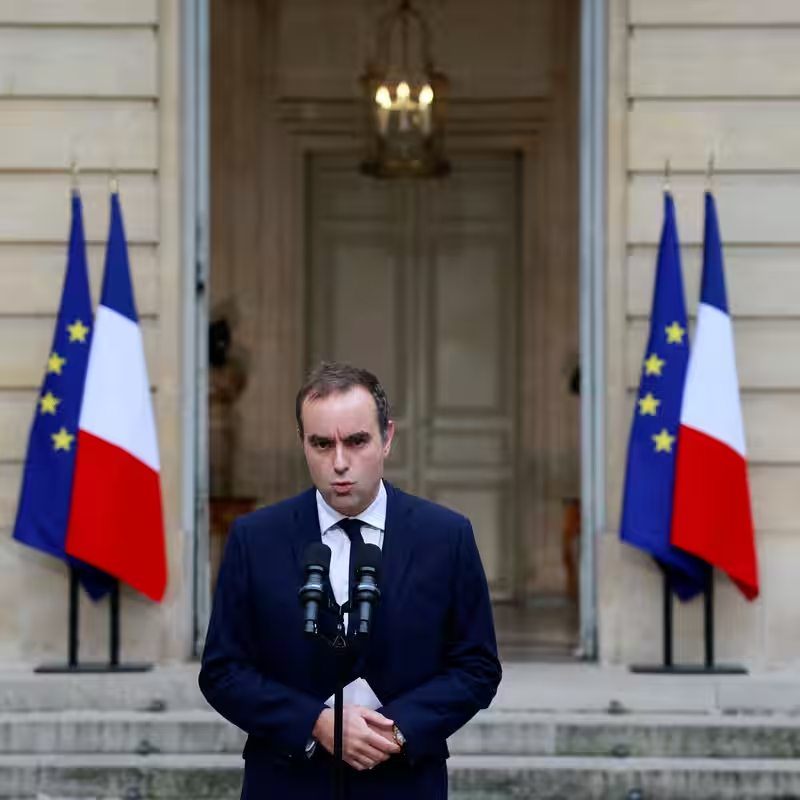Table of Contents
- Macron’s Bold Move to Stabilize France
- Who Is Sébastien Lecornu?
- Why This Reappointment Matters
- The Budget Crisis Explained
- Political Reactions Across the Spectrum
- What Comes Next for France?
- Sources
Macron’s Bold Move to Stabilize France
In a decisive effort to restore order amid mounting political chaos, French President Emmanuel Macron has reappointed Sébastien Lecornu as Prime Minister. The move comes as France teeters on the edge of a fiscal cliff, with a critical 2026 budget stalled in parliament and growing unrest among opposition parties.
Lecornu, who previously served as defense minister and briefly as prime minister earlier in 2025, is known for his pragmatic centrism and ability to navigate France’s fractured political landscape. His return signals Macron’s urgent push to pass the budget before year-end and avoid a government shutdown.
Who Is Sébastien Lecornu?
At just 39, Sébastien Lecornu is one of France’s youngest-ever prime ministers. A former member of the center-right UMP party, he joined Macron’s centrist Renaissance movement early in its formation and quickly rose through the ranks.
Before his first stint as PM, Lecornu served as Minister of the Armed Forces, where he oversaw France’s military support for Ukraine and modernized defense procurement. Colleagues describe him as “calm under fire” and “institutionally loyal”—traits Macron now needs more than ever.
Why This Reappointment Matters
France has been without a stable government since June 2025, when the previous coalition collapsed over disagreements on pension reform and deficit reduction. With no party holding a majority in the National Assembly, passing even routine legislation has become nearly impossible.
The Sébastien Lecornu reappointment is less about fresh leadership and more about continuity. Macron hopes Lecornu’s familiarity with both the executive and legislative branches will help broker last-minute compromises with centrists and moderate conservatives.
The Budget Crisis Explained
France’s 2026 draft budget aims to reduce the deficit to 4.4% of GDP—a target demanded by EU fiscal rules—but faces fierce opposition from both the left and right.
- Left-wing parties (NUPES) oppose cuts to public services and welfare.
- Far-right National Rally demands stricter immigration controls tied to spending.
- Les Républicains (center-right) want deeper tax cuts and pension reforms.
Without a functioning government, France risks missing its EU fiscal deadlines, which could trigger sanctions or force emergency austerity measures.
Political Reactions Across the Spectrum
Reactions to Lecornu’s return were predictably divided:
- Marine Le Pen (National Rally): “This is the same old elite recycling power. The people are tired of technocrats.”
- Jean-Luc Mélenchon (NUPES): “Macron is clinging to power while ignoring the social emergency.”
- Édouard Philippe (Horizons, centrist ally): “Lecornu is the right man for this moment—steady, experienced, and committed to reform.”
Even within Macron’s own camp, some worry the move is too little, too late. “Reappointing Lecornu won’t magically create a majority,” said one anonymous Renaissance MP.
What Comes Next for France?
Lecornu has 30 days to present a revised budget and win a confidence vote in the National Assembly. If he fails, Macron may be forced to call snap elections—a scenario he has so far avoided due to fears of a far-right surge.
For now, the reappointment of Sébastien Lecornu is a high-stakes gamble: a bid to project stability while buying time for backroom deals. Whether it succeeds could determine not just France’s fiscal future—but the fate of Macron’s presidency itself.




